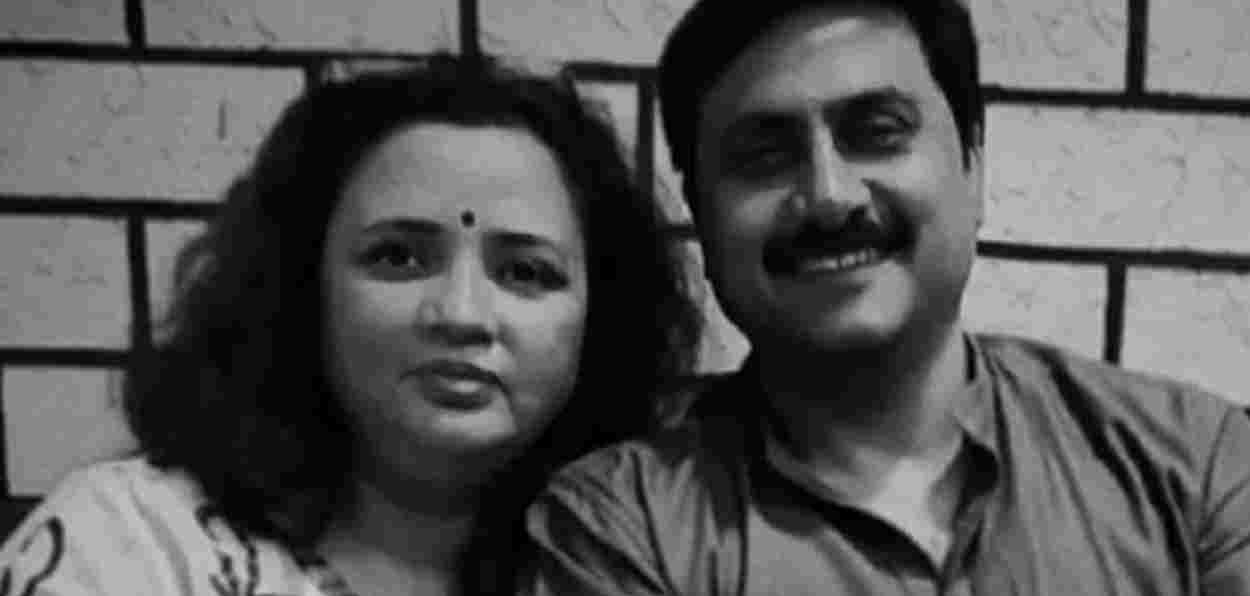
Aasha Khosa/New Delhi
Asif Iqbal, the founder of Dhanak of Humanity, an NGO that works with authorities to help young couples hounded by their families for interfaith or inter-caste marriage, says for him Eid-ul-Fitr is about meeting his family, visiting friends, and going to the mosque for prayers with his father and brother. However, this Eid, his teenage daughter has posed him a challenge.
“This time, my elder one wants to wear the traditional dress of kameez-gharara (traditional tunic-embellished trouser and dupatta dress worn by Muslim women on festive occasions) and also jhumkas (traditional Indian earrings) and I will have to arrange it,” says the suave Asif Iqbal who lives in Vasundhra, Ghaziabad with his wife Ranu Kulshrestra and daughters Raavi, 16, and Riya, 14.
“My Eid celebration has not changed much since my childhood days but now with children growing, I think we have to incorporate more cultural elements into the day’s celebration,” he told Awaz-the Voice.
Growing up in the Indian Air Force - where his father worked, campuses across India, Asif remembers his father taking him to all the houses – of the familiar and not-so-familiar people – on the way home from the mosque to wish them Eid Mubarak. “Eating seviya-kheer was my favourite moment of the day and it continues to be the same today.” He says his wife Ranu makes delicious seviya-kheer, a mandatory dish cooked and served to guests on Eid-ul-Fitr.
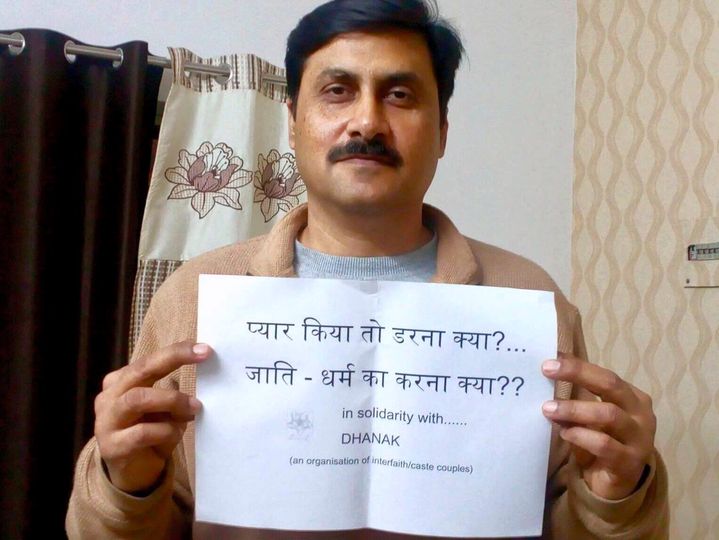 Asif Iqbal, Co-founder of Dhanak for Humanity holding a placard
Asif Iqbal, Co-founder of Dhanak for Humanity holding a placard
At this, he remembers he has yet to buy Seviya (vermicelli) and his wife had been complaining about it. “I am rather a lazy planner. Also, I believe, as one evolves as a human being, the work takes over other aspects of life and festivals turn more into cultural entities than religious.”
However, celebrations are very important for exposing children to their traditions and cultures, he says.
His father, who hailed from Unnao town in UP, and retired from IAF 20 years ago lives in Noida, UP. The family which initially didn’t take kindly to Asif marrying a non-Muslim in 1989, comes together on Eid. “This is one day when I must go to the mosque with my father and brother for namaz,” says Asif.
“Now, we don’t visit many houses and never that of an unfamiliar person, but, we, as a family, go to our friends to wish them in the afternoon.”
At the home of Asif and Ranu, all festivals are celebrated not necessarily with religious rituals but as cultural expressions. “On Christmas, we have a Christmas tree at home; on Diwali we light diyas as the girl no longer want to burst crackers; on Holi, we all play with colours and on Nanak Jayanti we light our house.”
Also for the girls’ born to interfaith parents is a win-win situation. “On Diwali, they visit and celebrate with their maternal grandparents, and on Eid they go to my parents’ house.”
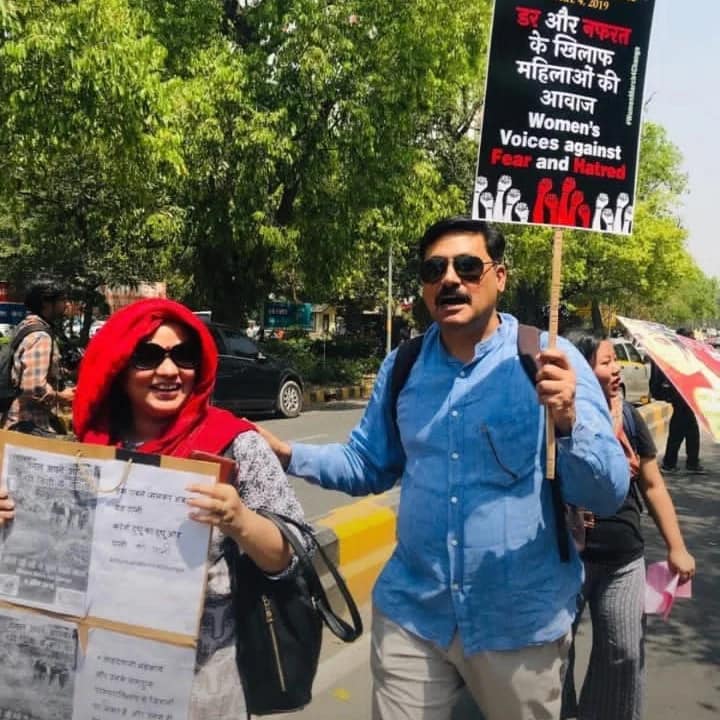 Ranu Kulshresta and Asif Iqbal on roads for right to Love
Ranu Kulshresta and Asif Iqbal on roads for right to Love
Asif Iqbal, who has used his difficult experience of marrying a person of his choice into a movement to help youth, says celebrating all festivals is fine but he is still working out an idea to celebrate the diversity of India. “I am figuring it out in my head how to celebrate diversity in a manner that it is not hijacked by the religionists,” he says thoughtfully.
His NGO Dhanak of Humanity that he and his wife Ranu Kulshresta set up in 2004 has so far helped 5,000 couples solemnize their marriages and handheld them till they are out of the radar of their families or relatives who want to teach them a lesson for daring to break social norms.
“We work in close association with the police and district authorities as per the Shakti Vahini case verdict of the Supreme Court,” Asif said.
When a couple approaches Dhanak for help against threat and pressure from families for their daring act to become life partners, the NGO informs the Nodal agency designated as per the mandate of the Supreme Court and the police the parent district of the couple. The special cell created in many states acts to ensure the safety of the couple and inform their parents that they are protected by the State.
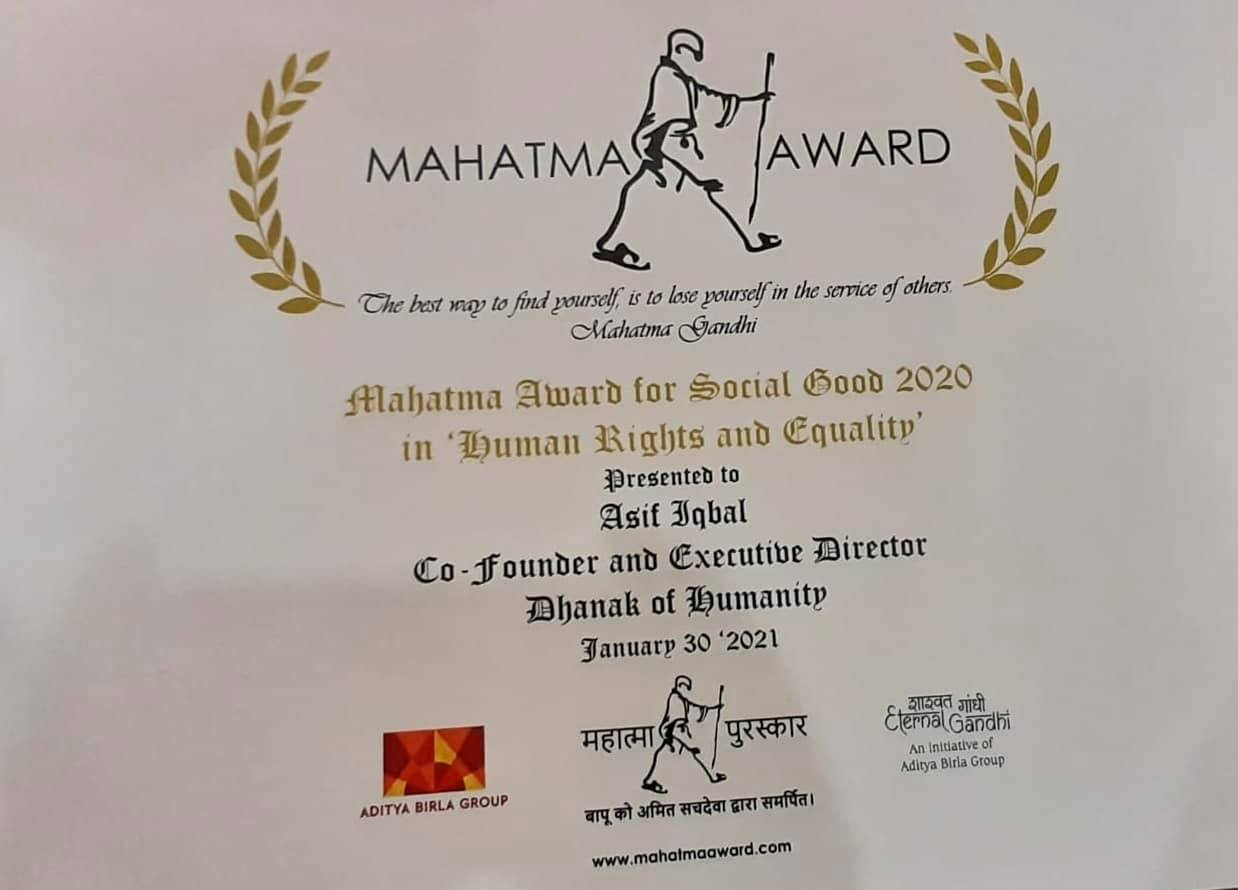 Mahatma Gandhi award for social good for Asif Iqbal
Mahatma Gandhi award for social good for Asif Iqbal
Working for the youth has made me understand that at the root of the problem of honour killings and forced marriages are the status of women. “We cannot deal with it through religion as everybody in India has a strong caste and religious identity.” Dhanak’s premise is that two adults marrying by choice under the Special Marriage Act – the civil law on marriage – is fine and there is no need to speak about their religion or their caste.
The NGO had reached out to schools and communities in the Trilokpuri and Kalyanpuri areas of East Delhi to educate people about gender equality and especially empower the women to assert their rights and not get trapped in the cycle of “patriarchy and religious supremacy.” He says they are also sensitised about the Constitution as giver of all rights to citizens of a country.
He says he is appalled to see women whom the NGO helps get out of the clutches of a patriarchic society tend to perpetuate the gender stereotypes.”We then get into educating the women to not be always dependent on their husband and also to the man that he needs to give her space and respect her as a human being.”
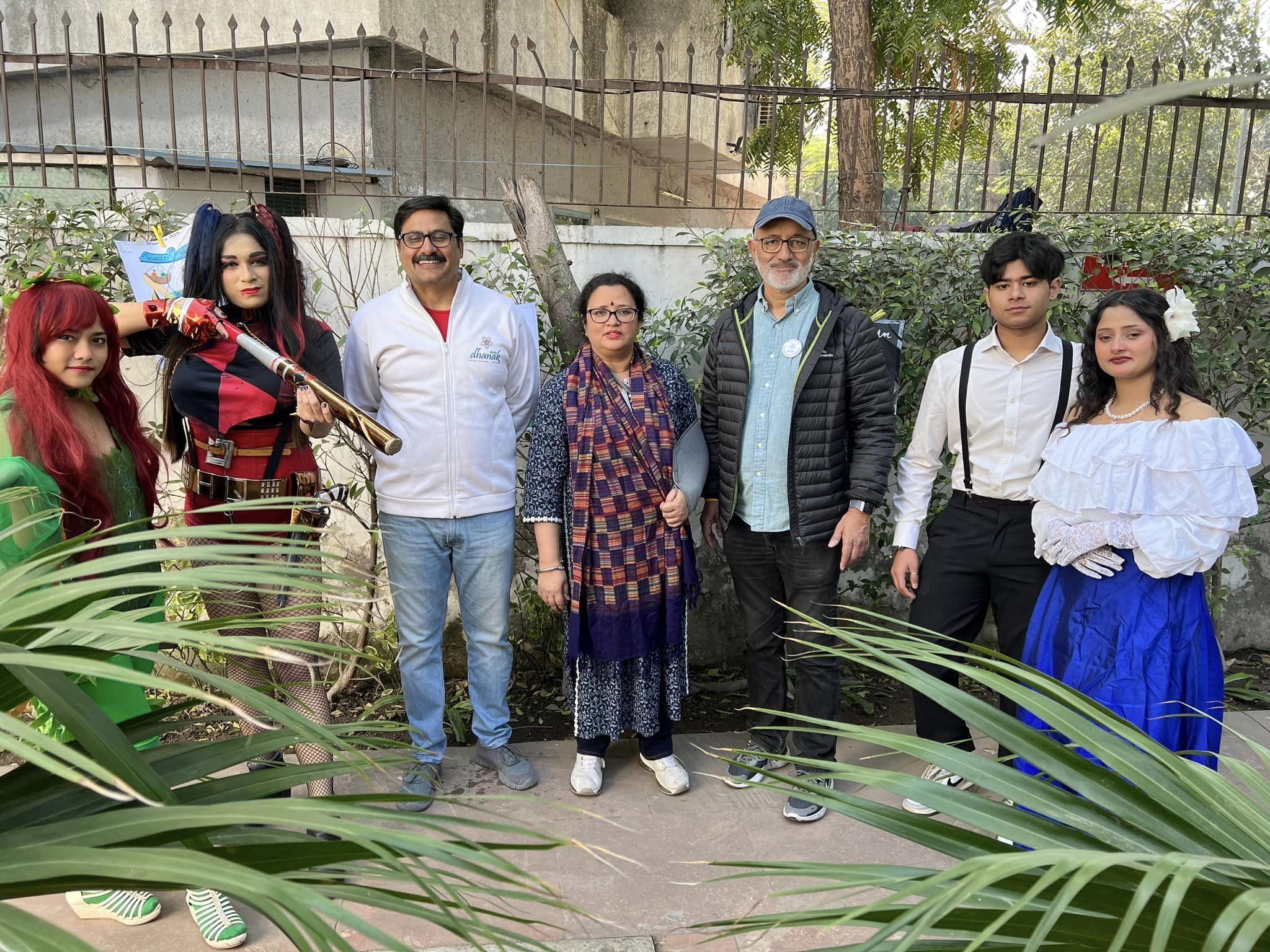 Celebration at Dhanak: interfaith couples come together
Celebration at Dhanak: interfaith couples come together
Asif Iqbal says his NGO also guides the couple in solemnizing their marriages under SMA and handholds the couple after they are out of the safe house maintained by the government. “We need to support them and build their capacity to lead normal lives much after police protection is over.”
Though he says of late the attitudes of authorities whose job is to facilitate the ‘love marriages’ have also hardened, some states like Maharashtra have taken the lead in setting special cells in each district to prevent honour killings that mostly are the result of revenge or punishment inflicted by families on the couples marrying outside caste or religion.”
ALSO READ: Singers Ghulam Hassan and Shivani Singh are looking forward to their fifth Eid together
Dhanak is also planning to set up safe houses in Delhi to lodge the young couple running away from their revengeful families
